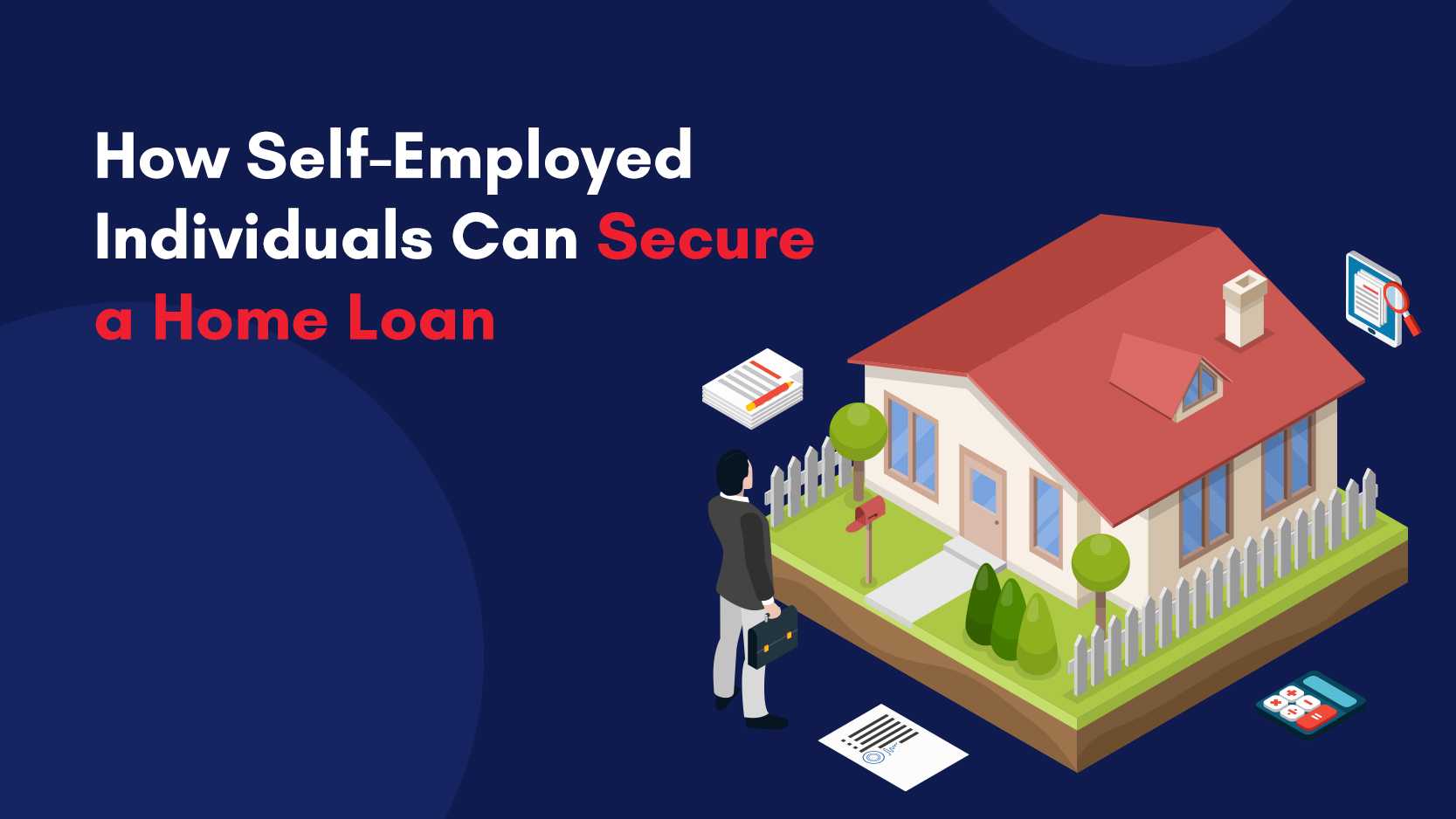Special Offers




Special Offers




11-Dec-2023 | Home Loan

In recent years, there has been a notable rise in the number of self-employed individuals, as people increasingly embrace entrepreneurship and flexible work arrangements. While the autonomy of being self-employed is appealing, it brings unique challenges, particularly when it comes to securing home loans.
This article explores the challenges faced by self-employed individuals in obtaining home loans, and the importance of homeownership for this growing demographic.
Self-employed individuals are those who work for themselves and are responsible for generating their own income. This category includes freelancers, entrepreneurs, small business owners, and independent contractors. Unlike traditional employees, self-employed individuals often face distinctive hurdles when seeking financial products, especially home loans.
The path to homeownership for the self-employed is laden with challenges. Traditional lending institutions often require stable income documentation and a solid credit history, aspects that can be elusive for those without a regular paycheck. However, the benefits of homeownership for the self-employed are substantial, making it crucial to address these challenges proactively.
One of the primary advantages of homeownership is the opportunity to build equity over time. Equity represents the portion of the property that the homeowner truly owns, providing a valuable asset that can appreciate in value.
Owning a home can contribute to long-term financial stability. As property values tend to increase over time, homeownership serves as a hedge against inflation and can become a cornerstone of an individual's overall financial portfolio.
One of the major obstacles self-employed individuals encounter is the difficulty in providing stable income documentation. Traditional lenders typically rely on pay slips or Form 16, which may not accurately reflect the income of those with variable or irregular earnings.
Establishing creditworthiness is another hurdle. Self-employed individuals may find it challenging to prove their ability to handle a mortgage, especially if they lack a consistent credit history or have encountered financial fluctuations.
Navigating the loan application process involves meticulous documentation. Self-employed individuals should be prepared to provide tax returns, financial statements, and other evidence of income stability.
A strong credit profile is paramount for securing favourable loan terms. Consistent debt management, on-time bill payments, and strategic use of credit can significantly improve creditworthiness.
Fortunately, HFCs like Aavas Financiers Ltd recognize the unique financial circumstances of self-employed individuals. The loan products are tailored in order to accommodate irregular income streams and provide more flexibility in the application process.
Opting for HFCs like Aavas Financiers Ltd. offers advantages such as personalised loan structures, a better understanding of self-employment dynamics, and a higher likelihood of approval.
Self-employed individuals should be meticulous in organising their tax returns and financial statements. Providing a clear picture of income stability over time is crucial in the home loan approval process.
In addition to tax documents, bank statements can serve as alternative income verification tools. Regular and consistent deposits can demonstrate financial stability to lenders.
A good credit score is a cornerstone of successful homeownership. It not only influences the interest rate offered but also affects the overall affordability of the home loan.
Self-employed individuals can improve their creditworthiness by managing existing debts responsibly, resolving outstanding issues, and avoiding late payments. Regularly monitoring credit reports is essential for identifying and addressing potential issues.
Building a robust financial profile involves disciplined savings and strategic investments. Lenders appreciate evidence of financial responsibility and stability.
Managing the debt-to-income ratio is critical for home loan approval. Keeping debts in check relative to income is a key factor financial institutions consider when assessing financial stability.
During the loan process, self-employed borrowers should emphasise their financial stability through consistent income, substantial savings, and a strong credit history.
Negotiating favourable home loan terms is not only about securing approval but also about ensuring the terms align with the borrower's financial goals. This includes considering the tenure of the home loan and interest rates.
Dispelling common misconceptions is essential. Addressing myths, such as the belief that self-employed individuals cannot qualify for competitive loan rates, helps pave the way for informed decision-making.
Educating self-employed individuals about the realities of the loan application process can empower them to navigate the system with confidence. Understanding that homeownership is achievable with the right approach is crucial.
Financial planning is a crucial aspect of preparing for homeownership. Engaging with financial experts to develop a comprehensive plan that aligns with the unique circumstances of self-employment is key to long-term success.
The landscape of self-employed homeownership is continually evolving. As the gig economy expands and more individuals opt for non-traditional employment, the industry is likely to see innovative solutions and tailored financial products.
There are many opportunities for growth in the self-employed homeownership sector. Lenders, recognizing the potential of this demographic, may introduce products that are more flexible and streamline application processes.
In conclusion, the journey to homeownership for self-employed individuals involves navigating through unique challenges. From addressing documentation requirements to choosing financial institutions and improving creditworthiness, a proactive approach is crucial. Despite the obstacles, the benefits of homeownership for the self-employed are substantial. Building equity, achieving long-term financial stability, and creating a valuable asset are all within reach with careful planning and perseverance. By dispelling misconceptions, and seeking expert guidance, self-employed individuals can confidently embark on the path to homeownership and secure their financial future.